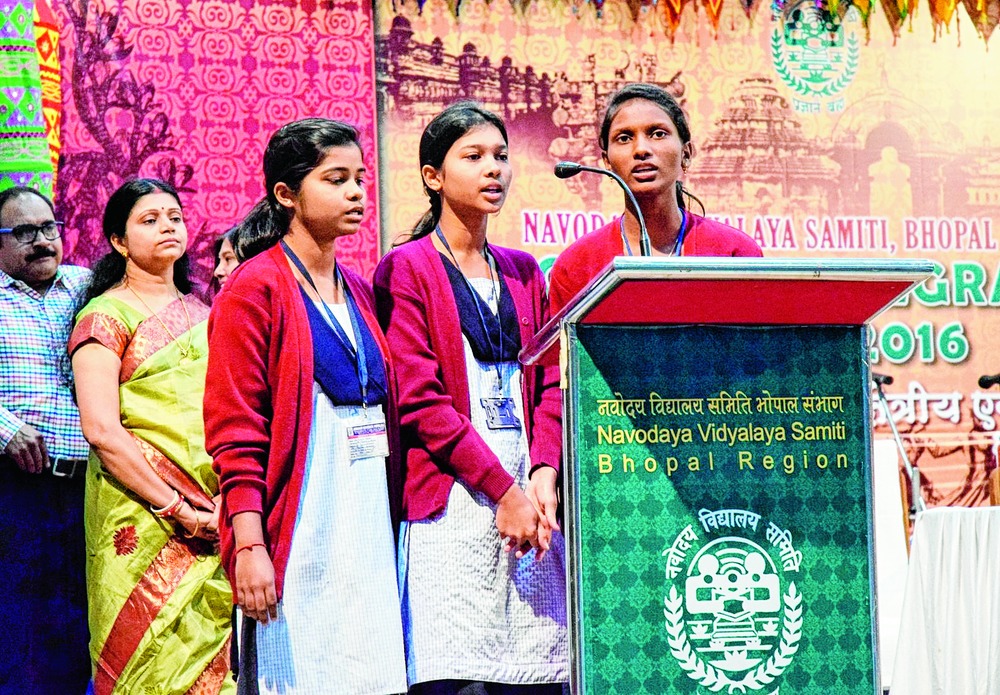
Bhubaneswar, Nov. 17: The Navodaya group of schools in the state is reeling from teacher crunch in spite of being one of the best performers in matriculation and Plus Two examinations.
Reports suggest that the 31 Navodaya schools in Odisha have nearly 60 vacancies, including eight in maths and physics, 10 each in chemistry, Hindi and history and nine in English.
Speaking on the sidelines of the Regional Integration Meet organised by the Navodaya Samiti here, deputy commissioner of Navodaya Vidyalaya Samiti's regional office at Bhopal K.S. Guleria said: "There is teacher scarcity in subjects, especially maths and science, but the problem will hopefully be resolved soon. The recruitment process is under way and being conducted by the CBSE."
The jurisdiction of regional office, Bhopal, extends to Chhattisgarh, Madhya Pradesh and Odisha.
"The teachers of Jawahar Navodaya Vidyalaya (JNV) are extremely good and they are often poached by private schools in the name of better pay and facilities. The teachers at times decide to leave for greener pastures to enjoy life in the city. It also ensures job opportunities for their spouses," said a JNV teacher on condition of anonymity. The teacher also said that unlike other government teachers, they had no provision of pension, which was "demotivating".
There are 31 Jawahar Navodaya Vidyalayas in Odisha, 50 in Madhya Pradesh and 17 in Chhattisgarh.
Guleria also said that 11 new schools would be coming up at Chhattisgarh. "The land has been identified by the state government. Jawahar Navodaya Vidyalayas generally need 30 acres, which is provided free by the state governments," he said.
The deputy commissioner also said that efforts were being made to improve the infrastructure in the form of classrooms and laboratories to keep up with latest demands.
"Special focus is also being given to improve English communication skills of our students as well as teachers through training, workshops and remedial classes. Students of JNV, who often come from rural backgrounds, are often poor in English language," said assistant commissioner Parbati Pradhan.
JNVs are central government-run residential schools in the rural hinterlands. They aim to provide opportunities to talented children in rural areas by making quality education available to them, irrespective of their capacity to pay for it.
The aim is to enable students from rural areas to compete with their urban counterparts. Admission into these schools that have classes from VI to XII is done through an entrance exam designed and conducted by CBSE.










